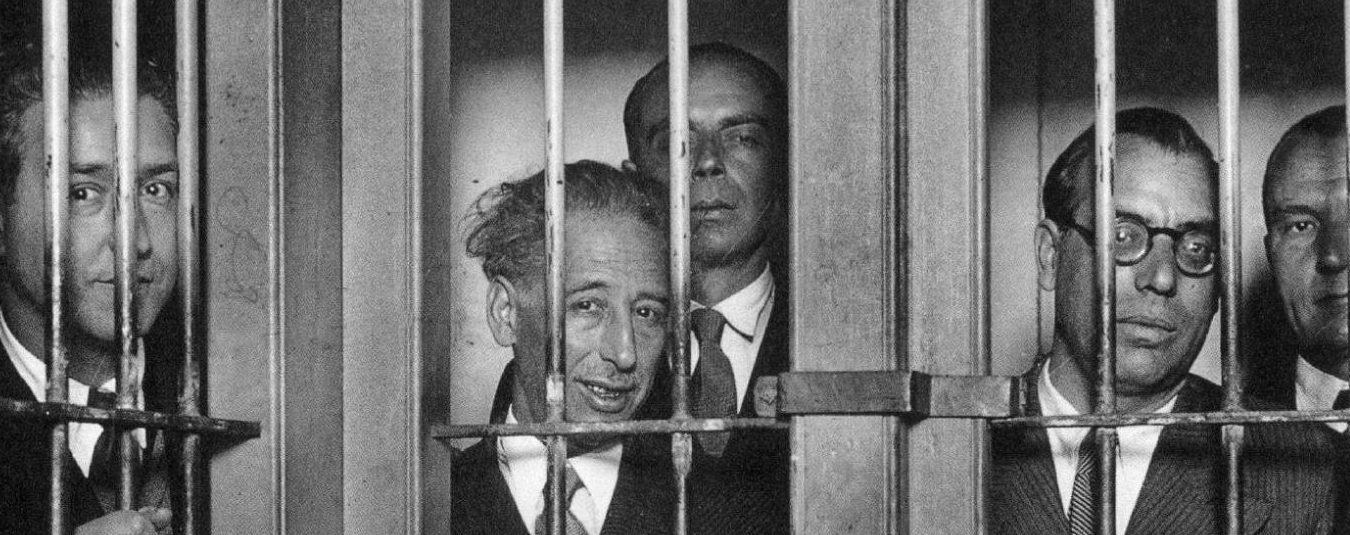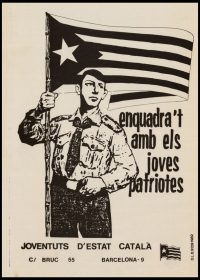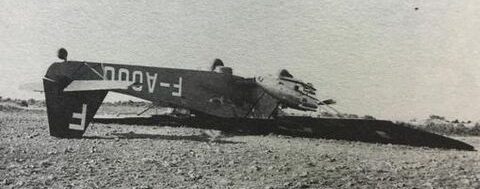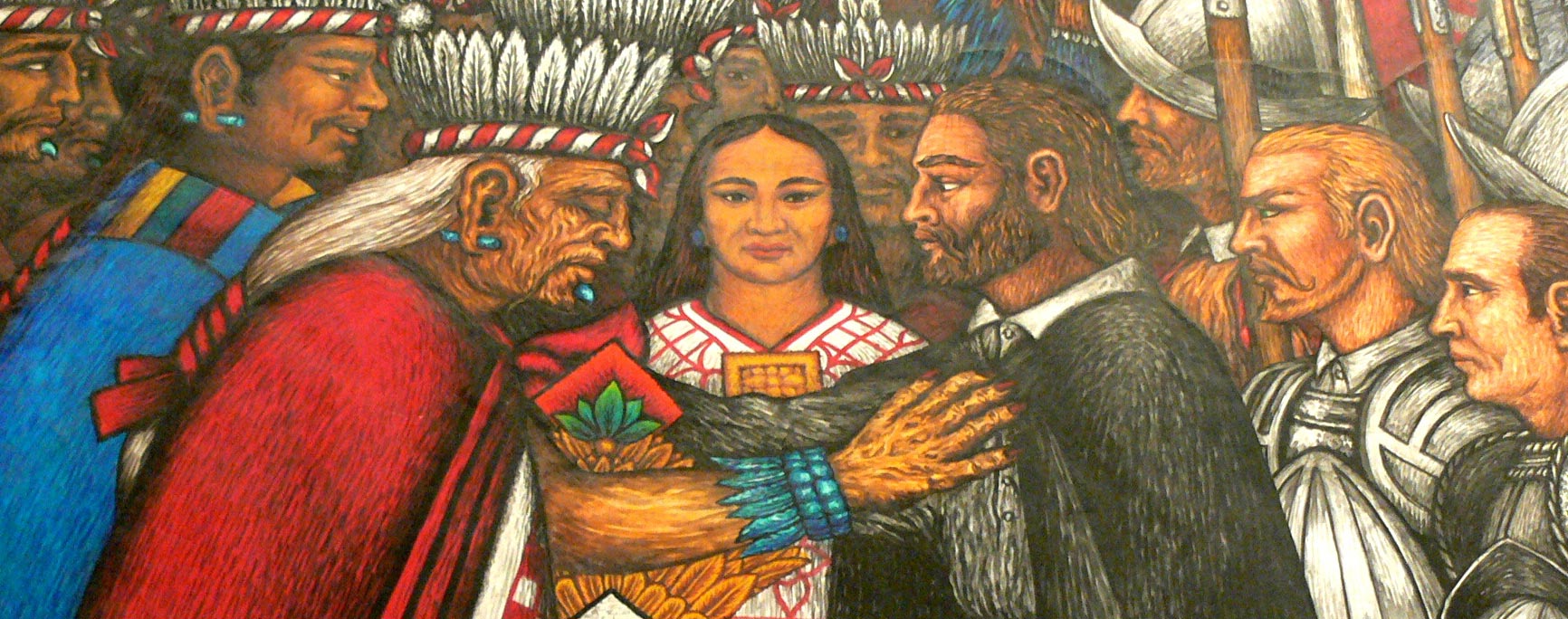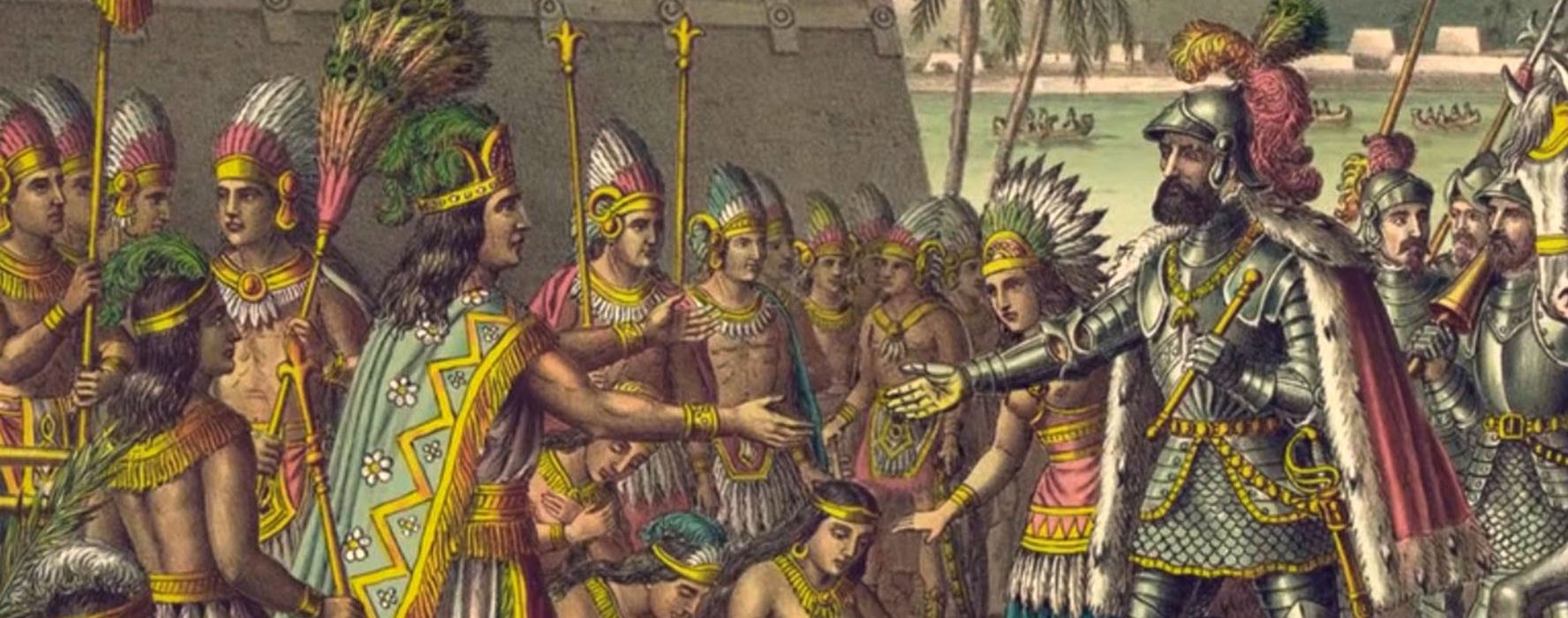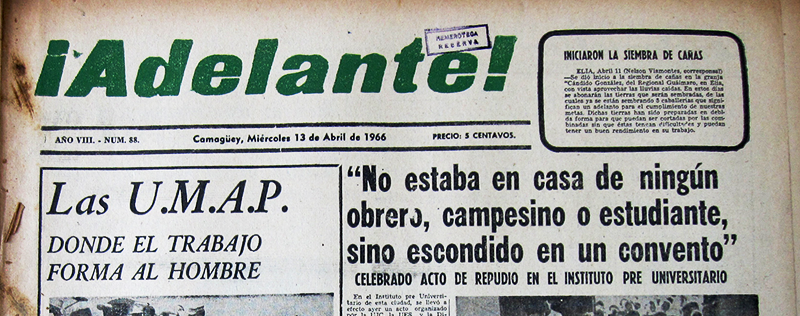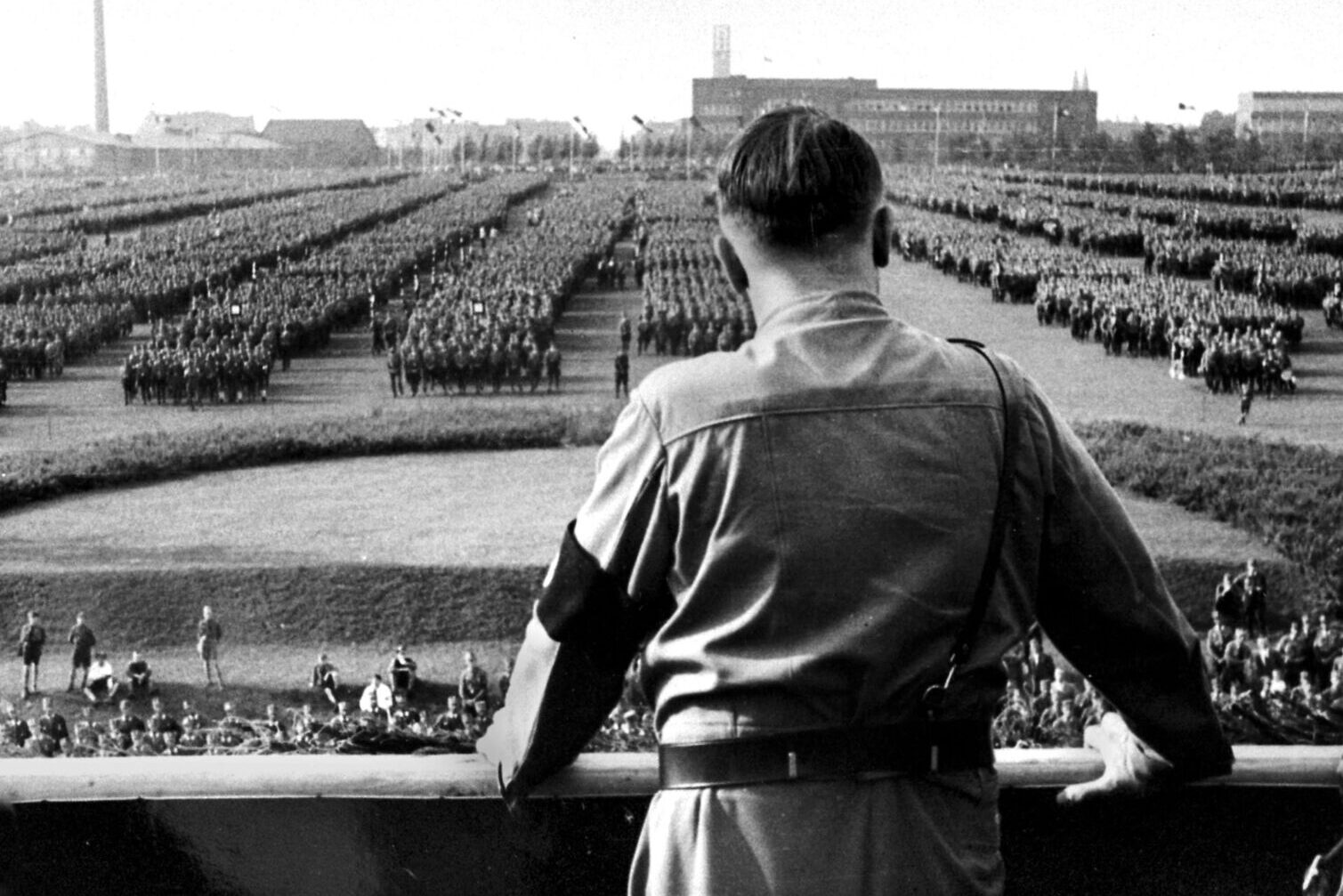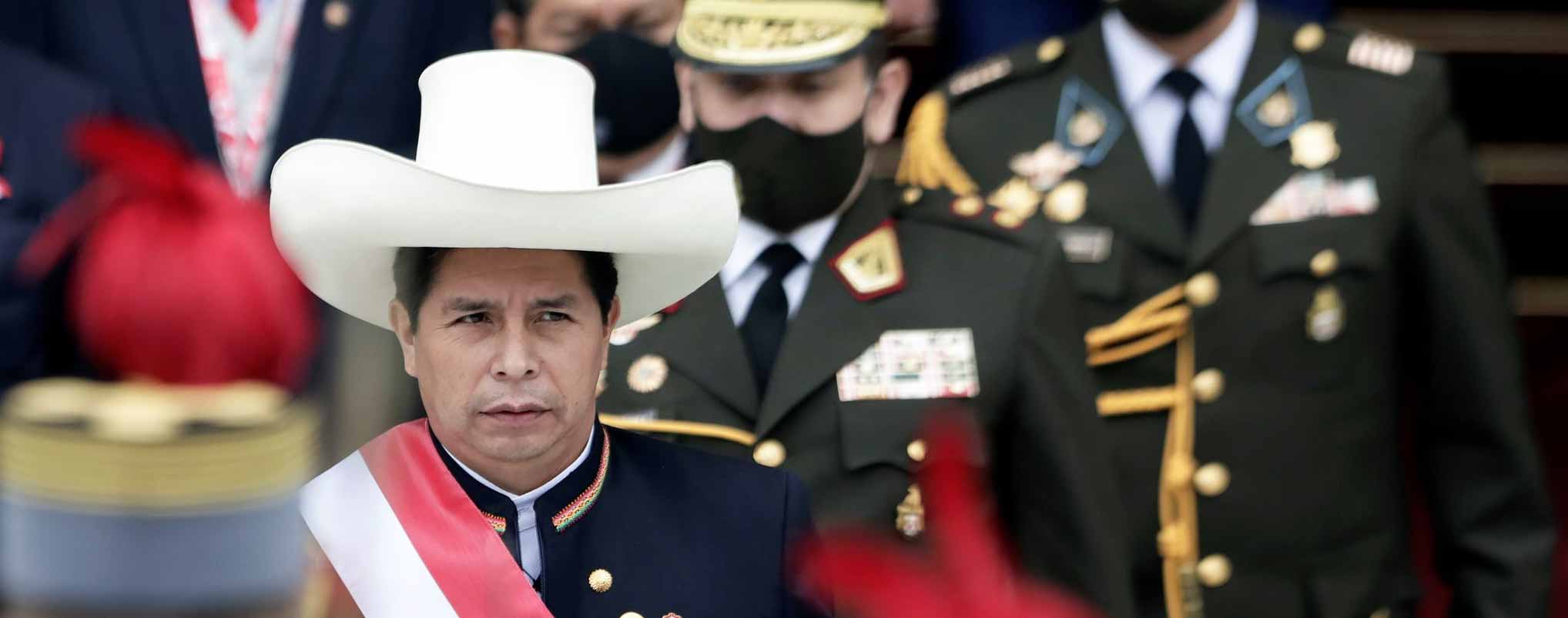Source:El Debate
This is the reality of what happened in the Catalan rearguard during the first ten months of the Civil War.
To the representatives of the CNT-FAI (anarchist unions) Lluís Companys told them that:
“I have to tell you that the CNT and the FAI have never been treated in the way they deserved because of their true importance. You have always been harshly persecuted and I, with a lot of pain but forced by the political realities that I was with you before, have been forced to confront and persecute you afterwards. Today you are masters of the city and of Catalonia, because you alone have defeated the fascist military.”
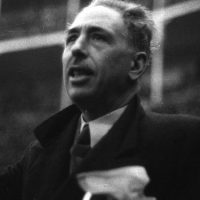
Lluís Companys
This declaration of intent by Companys was made on 20 July 1936, hours after the outbreak of the civil war. His thinking is very clear when he states that “today you are masters of the city and of Catalonia”. Power was in his hands. He handed it over directly to his anarchist friends, and why? Thanks to them he was president of the Generalitat. On 20 November 1932, the only elections to the Generalitat during the period of the Second Republic were called. On that occasion, Francesc Macià won and became president. Macià died on 25 December 1933. After Macià’s death, it was anarcho-syndicalism that brought Companys to the presidency. That is why he handed over power to them. He owed much more to them than to his ERC (Republican Left of Catalonia) or Estat Català comrades. Thus anarcho-syndicalism became the master of the situation.
In Informe confidencial. Situación política en Cataluña a los tres meses del pronunciamiento militar, preserved in the Archivo General Militar de Ávila, the situation in which Catalonia lived the first ten months of the civil war is clearly described:
“This preponderance to the men of the FAI is due to the cowardice of the Esquerra [ERC], which submitted completely to the dictates of the anarchists and to the lack of a policy which the PSUC, by reason of its being a party formed by the merger of four others, could not then impose because of its organic youth.”
This cowardice meant that on 20 July 1936 there were 40,000 members of the CNT-FAI dominating the streets of Barcelona. They were the so-called “uncontrolled” who dominated daily life in Barcelona. These cenetistas were many things but they were never uncontrolled. They always had everything under control. They were Companys’ militiamen. His army. Power was in their hands not only because Companys so decided but because they were the only ones who could control the street. The Generalitat had the Mossos d’escuadra, but they alone could not control it. It needed the anarcho-syndicalists to make it stronger and to control the situation once the military uprising had subsided.
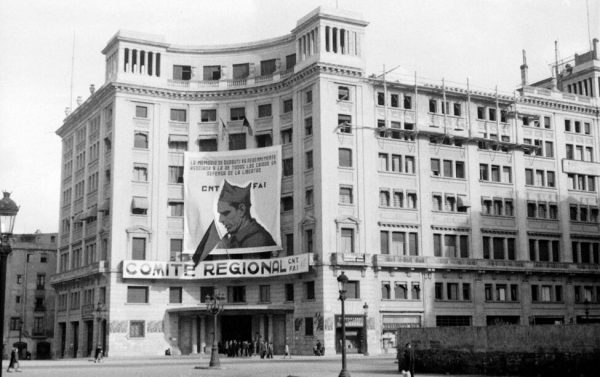
Headquarters of the CNT-FAI regional committee, located on the current Via Laietana (then known as Via Durruti). Author unknown
These characters had no scruples. They were used to killing. That is why they were in charge of executing, at first, all those who had risen up against the republic and, later, the other citizens of the Catalan rearguard. Companys’ loyalty to the CNT-FAI was not only to maintain his position as president of the Generalitat. It was also because they did the dirty work. What we call anarcho-syndicalist repression. Companys, when he had had enough, organised a coup d’état. He framed the CNT-FAI and the POUM and allied himself with the PSUC. This happened during the events of May 1937. Companys did not, a priori, have dirty hands. It was the anarcho-syndicalists behind the back of the Generalitat. The reality is that they acted thanks to the Generalitat, which let them move with impunity throughout Catalonia.
This sentenced him to death in 1940. Believing that they would never lose the war, he thought that everything would go unpunished. And there he was wrong. As Francesc Cambó wrote: “The firing squad was an immense mistake by Franco. Unfair? He [Companys], on 6 October 1934, had committed the same crime as the military… and was pardoned. In 1936 he had all the military rebels shot.”
These executions, believing himself to be above good and evil and not remembering that he saved his life thanks to the benevolence of some men who thought it better to condemn him to prison, is what nobody forgave him once the Civil War was over.
Necessity led the Generalitat to become involved with anarcho-syndicalism. Hence it paid the salaries of more than 90,000 CNT-FAI militiamen. This was Companys’ private army. They were also given 80,000 rations of food and as much equipment every day. Apart from allowing them to loot whatever they wanted, he fed them to keep them happy.
The anarcho-syndicalists had the power of the street, of collectivisations, of repression, of good and evil, with the direct and indirect support of the Generalitat of Catalonia and, in particular, of its president Lluís Companys. That is why, when the report we have been discussing comments that “the political situation in Catalonia is manifesting itself in a chaotic process with a tendency to worsen”, we do not agree.
It was not a chaotic process, quite the contrary. It may have seemed so from the outside, but it was not true. Companys had the situation under control until he pretended that it got out of hand. Nor did the anarcho-syndicalists get out of control. The problem was one of fatigue. When he got tired, he decided to eliminate them. Hence the events of May 1937. So he always dominated the situation and had his hands clean of the looting and repression that took place in Catalonia. A perfectly worked out plan that worked out well for him.
That is why we cannot speak of uncontrolled. It was an invention that suited Companys and his acolytes. To say that they could do nothing because they were “uncontrolled” was the easiest thing to do. This was how Companys presented himself to his own people as a victim of the system. According to the leaders of the Generalitat, these anarcho-syndicalists had taken power behind his back and were doing what they wanted. The reality was very different. They were very selective in their repression and did not assassinate anyone who did not “deserve” to be assassinated. Everything was very controlled, agreed upon and they followed a very well-defined method.
That’s why the repression in the rear was disguised. Ways were sought to disguise the barbarity committed. Now we can safely say that the unofficial figure of 8,352 people killed during the Civil War [in Catalonia] falls far short of what really happened. The cowardice of some and the murderous instinct of others caused a minimum of 26,606 deaths in the Catalan rearguard. Most of them were registered with a “cause of death” that was very different from reality.
The cowardice of the ERC was not due to submission dictated by the anarcho-syndicalists. It was the result of the incompetence of Lluís Companys. He let his friends do it because he knew perfectly well that they were professionals and would carry out his road map without getting their hands dirty. This was his cowardice. Not to surrender to the anarcho-syndicalists, but not to have the courage to carry out his political and ideological pretensions and hand them to third parties. This is the reality of what happened in the Catalan rearguard during the first ten months of the Civil War.
Share this article
On This Day
No Events
History of Spain
26 August 2020
27 January 2021
Communism: Now and Then
23 December 2022
28 July 2021
